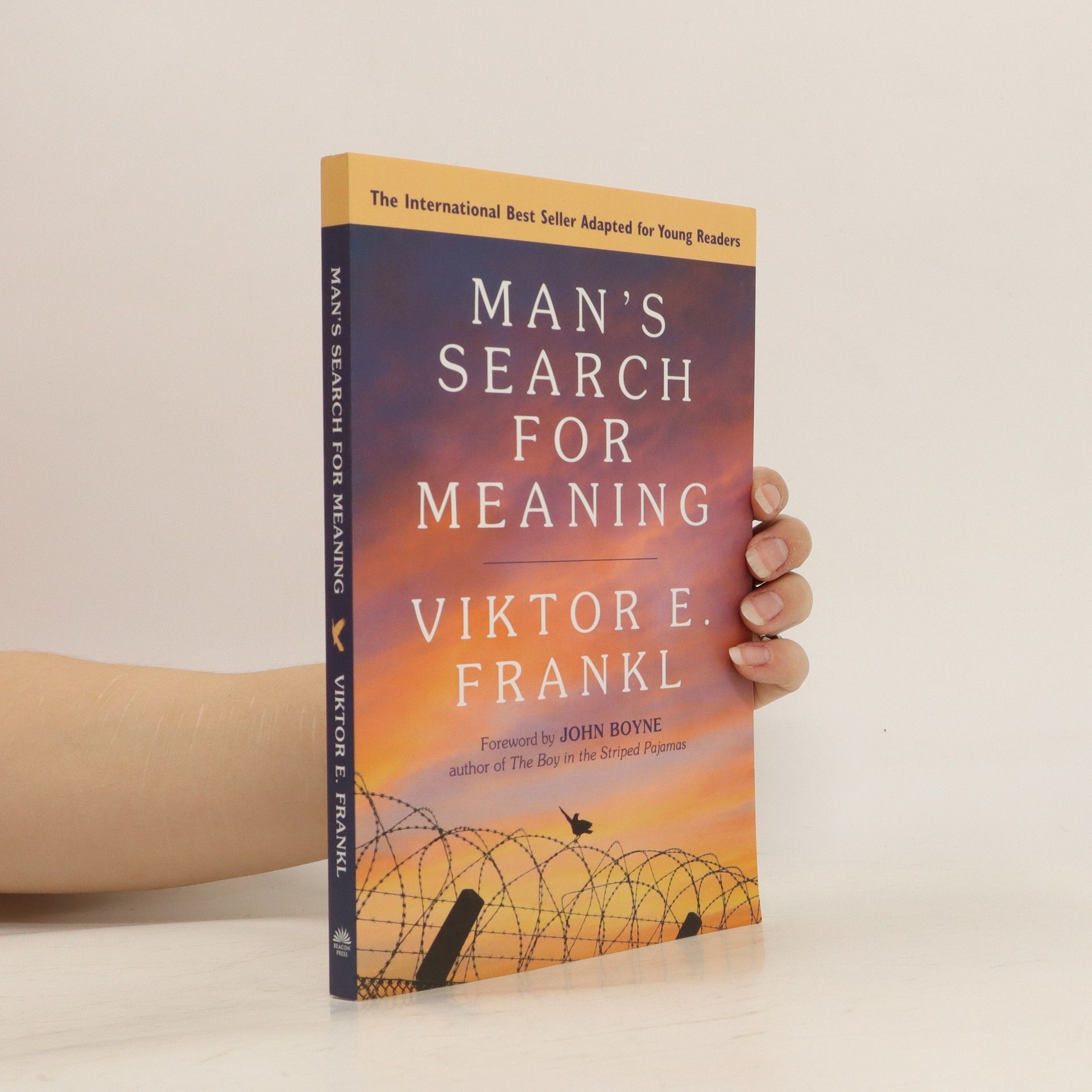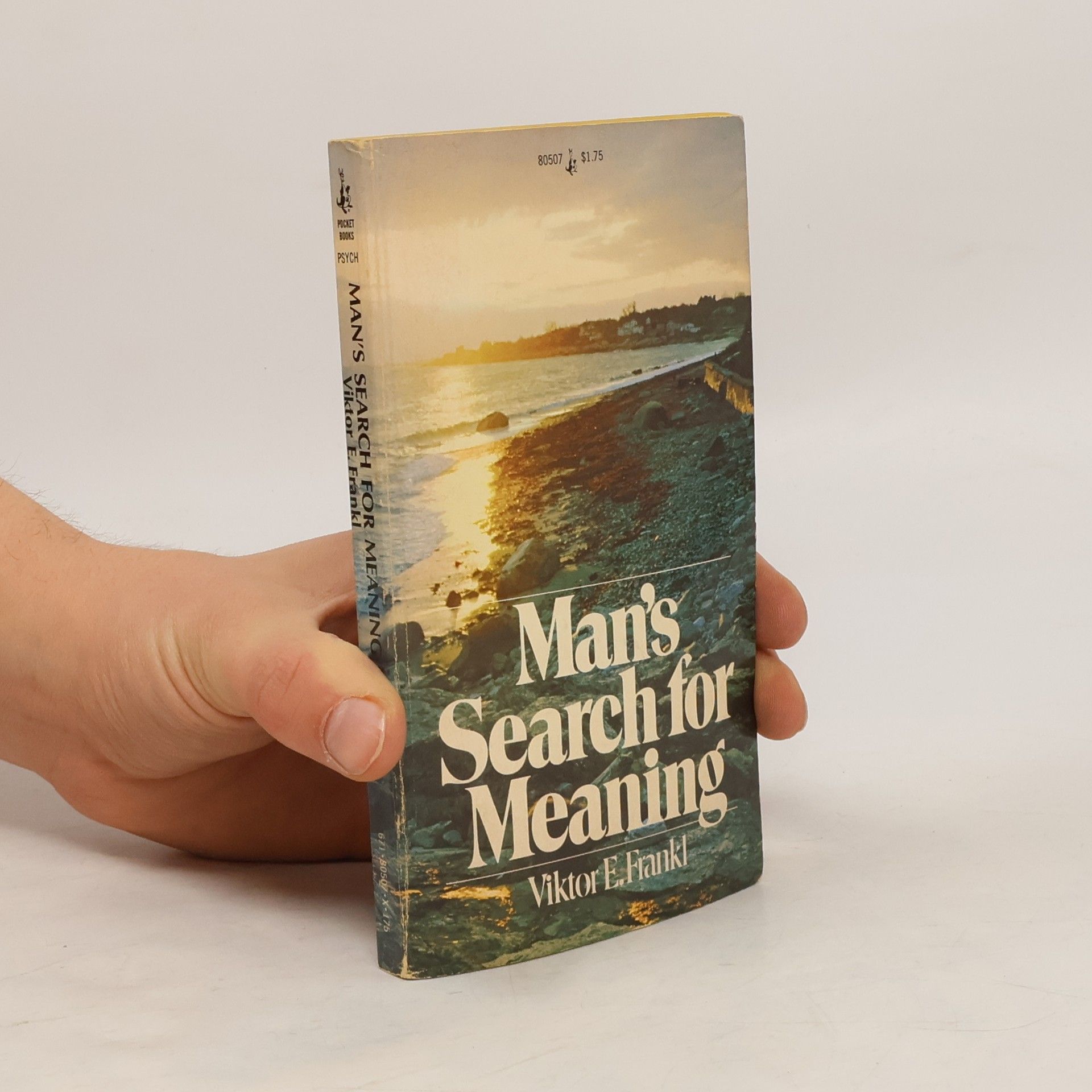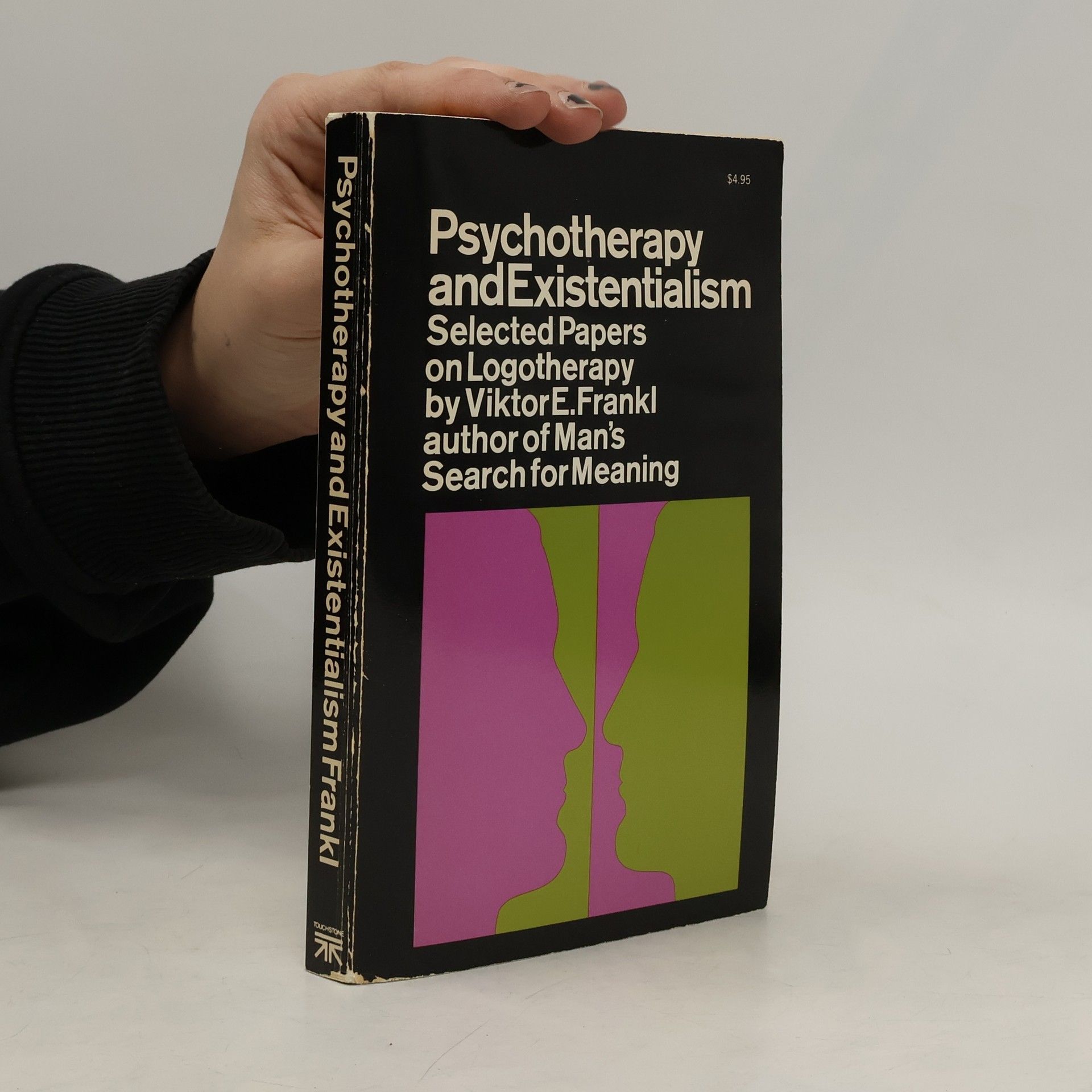Frankliana Neerlandice - 1: Humaniteit van de menselijke vrijheid
Spiritualiteit en verantwoordelijkheid in psychotherapie
- 70bladzijden
- 3 uur lezen
Viktor Emil Frankl, neuroloog en psychiater, was een Holocaustoverlevende die de logotherapie, een vorm van existentiële analyse, ontwikkelde. Zijn baanbrekende werk, voortkomend uit zijn aangrijpende ervaringen, beschrijft een psychotherapeutische benadering gericht op het vinden van betekenis in alle omstandigheden, zelfs de meest uitzichtloze. Deze zoektocht naar zingeving biedt, zo betoogde hij, de essentiële reden om te blijven leven. Frankl wordt beschouwd als een sleutelfiguur in de ontwikkeling van de existentiële therapie.







Spiritualiteit en verantwoordelijkheid in psychotherapie
Book by Lent, Timothy
Emphasizing spiritual values and the quest for meaning in life in its approach to the neurotic behavior, by the founder of logotherapy.
With a new Foreword by Harold S. Kushner and a new Biographical Afterword by William J. Winslade Psychiatrist Viktor Frankl's memoir has riveted generations of readers with its descriptions of life in Nazi death camps and its lessons for spiritual survival. Between 1942 and 1945 Frankl labored in four different camps, including Auschwitz, while his parents, brother, and pregnant wife perished. Based on his own experience and the experiences of others he treated later in his practice, Frankl argues that we cannot avoid suffering but we can choose how to cope with it, find meaning in it, and move forward with renewed purpose. Frankl's theory-known as logotherapy, from the Greek word logos ("meaning")-holds that our primary drive in life is not pleasure, as Freud maintained, but the discovery and pursuit of what we personally find meaningful. At the time of Frankl's death in 1997, Man's Search for Meaning had sold more than 10 million copies in twenty-four languages. A 1991 reader survey for the Library of Congress that asked readers to name a "book that made a difference in your life" found Man's Search for Meaning among the ten most influential books in America. Beacon Press, the original English-language publisher of Man's Search for Meaning, is issuing this new paperback edition with a new Foreword, biographical Afterword, jacket, price, and classroom materials to reach new generations of readers.
Frankls memoir describes life in Nazi death camps and offers lessons for spiritual survival. Based on his own experience and the stories of his patients, he argues that we cannot avoid suffering but we can choose how to cope with it, find meaning in it, and move forward. At the heart of his theory, known as logotherapy, is a conviction that the primary human drive is not pleasure but the pursuit of what we find meaningful. --Adapted from publisher description.
A young adult edition of the best-selling classic about the Holocaust and finding meaning in suffering, with a photo insert, a glossary of terms, a chronology of Frankl’s life, and supplementary letters and speeches Viktor E. Frankl’s Man’s Search for Meaning is a classic work of Holocaust literature that has riveted generations of readers. Like Anne Frank’s Diary of a Young Girl and Elie Wiesel’s Night, Frankl’s masterpiece is a timeless examination of life in the Nazi death camps. At the same time, Frankl’s universal lessons for coping with suffering and finding one’s purpose in life offer an unforgettable message for readers seeking solace and guidance. This young adult edition features the entirety of Frankl’s Holocaust memoir and an abridged version of his writing on psychology, supplemented with photographs, a map of the concentration camps, a glossary of terms, a selection of Frankl’s letters and speeches, and a timeline of his life and of important events in the Holocaust. A foreword by renowned novelist John Boyne provides a stirring testament to the lasting power of Frankl’s moral vision.
The classic tribute to hope from the Holocaust
A prominent Viennese psychiatrist before the war, Viktor Frankl was uniquely able to observe the way that both he and others in Auschwitz coped (or didn't) with the experience. He noticed that it was the men who comforted others and who gave away their last piece of bread who survived the longest - and who offered proof that everything can be taken away from us except the ability to choose our attitude in any given set of circumstances. The sort of person the prisoner became was the result of an inner decision and not of camp influences alone. Only those who allowed their inner hold on their moral and spiritual selves to subside eventually fell victim to the camp's degenerating influence - while those who made a victory of those experiences turned them into an inner triumph. Frankl came to believe man's deepest desire is to search for meaning and purpose. This outstanding work offers us all a way to transcend suffering and find significance in the art of living.
From the author of Man's Search for Meaning, one of the most influential works of psychiatric literature since Freud. Holocaust survivor Viktor E. Frankl is known as the founder of logotherapy, a mode of psychotherapy based on man's motivation to search for meaning in his life. The author discusses his ideas in the context of other prominent psychotherapies and describes the techniques he uses with his patients to combat the "existential vacuum." Originally published in 1969 and compiling Frankl's speeches on logotherapy, The Will to Meaning is regarded as a seminal work of meaning-centered therapy. This new and carefully re-edited version is the first since 1988.
Eleven months after his liberation from Auschwitz, Viktor E. Frankl held a series of public lectures in Vienna, published here for the first time. The psychologist explained his central thoughts on meaning, resilience and the importance of embracing life even in the face of great adversity
An Introduction to Logotherapy and Existential Analysis
Logotherapy and Existential Analysis has been internationally recognized for decades as an empirically supported humanistic school of psychotherapy. Evidence for the growing significance of logotherapy includes institutes, societies and professorships in many countries of the world, as well as conferences and publications. On the Theory and Therapy of Neuroses: An Introduction to Logotherapy and Existential Analysis, the translation of Viktor Frankl's Theorie und Therapie der Neurosen by James M. DuBois, will allow for the first time English-only readers to experience this essential text on logotherapy.